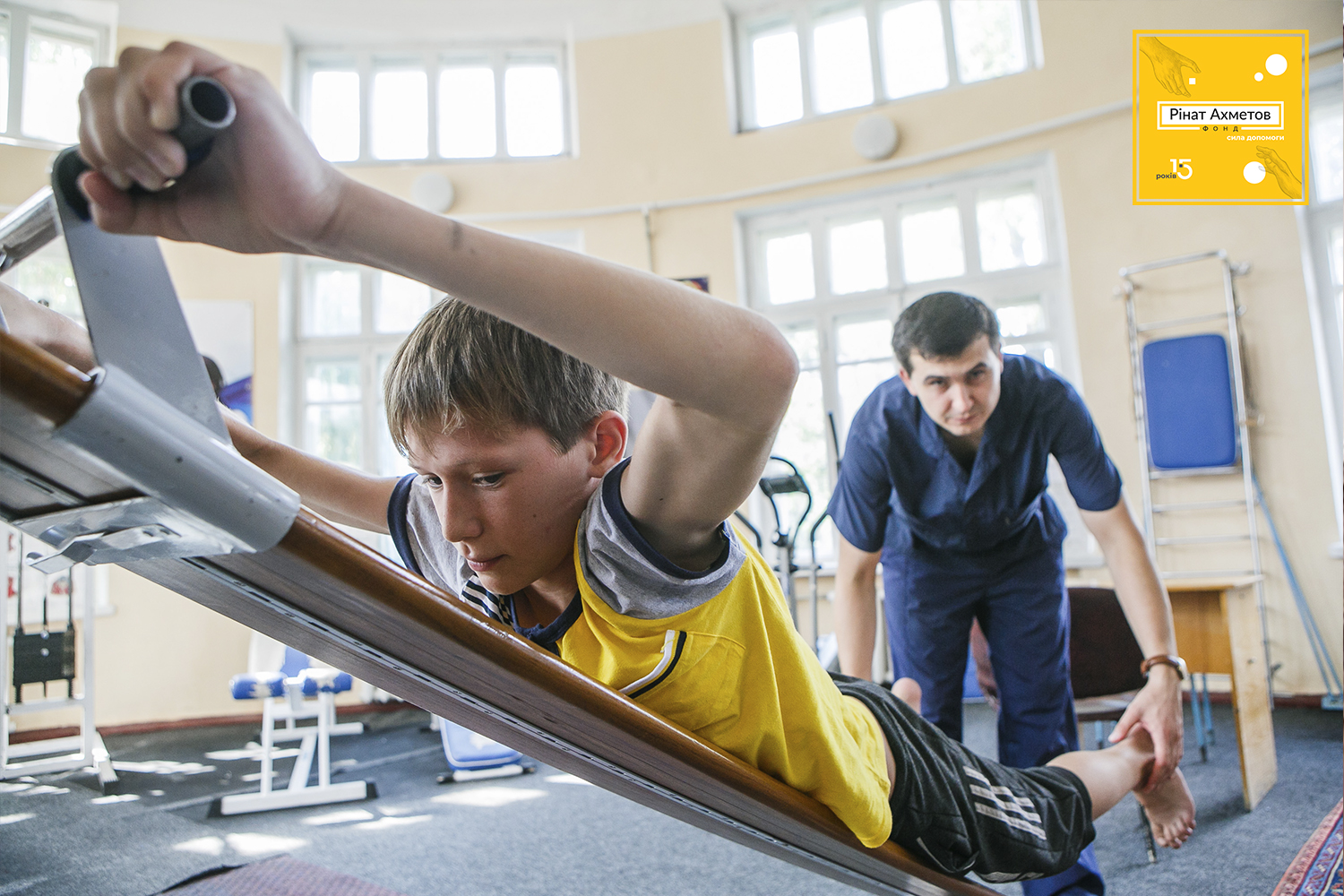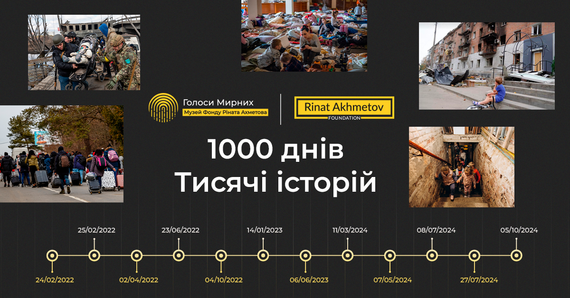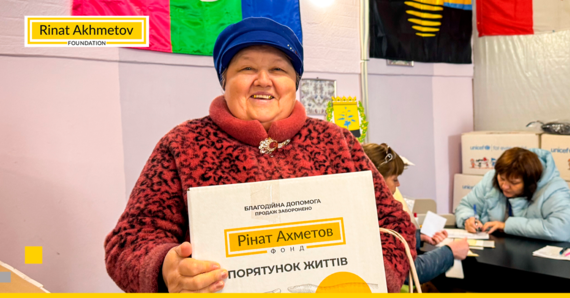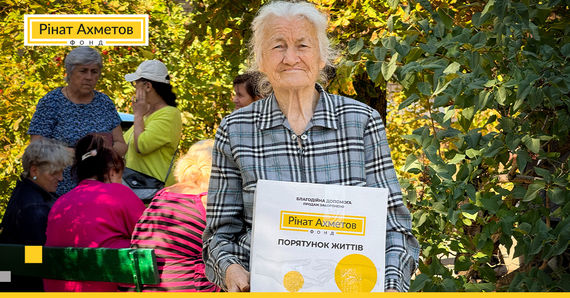Results of the next season of Rinat Akhmetov for Children. Rehabilitation of Injured Children

It is the fifth year the Rinat Akhmetov Foundation has been running the project Rinat Akhmetov for Children. Rehabilitation of Injured Children. Project in the fall of 2020 was held online due to a coronavirus pandemic. Parents of young participants were able to join it by means of such format.
The project lasted five weeks this year. During this time, psychologists of the Rinat Akhmetov Foundation conducted 10 sessions for each family participating in the project. They helped children and adults overcome psychological consequences of the injuries sustained in the result of the armed hostilities in Donbass.
"Despite the quarantine restrictions, the Rinat Akhmetov Foundation continues to help residents of Donbass affected by the armed hostilities. Rinat Akhmetov for Children. Peaceful Summer has already been implemented remotely, and now this is the fifth season of Rinat Akhmetov for Children. Rehabilitation of Injured Children. Each family participating in the project was offered 10 sessions with professional psychologists. The Rinat Akhmetov Foundation has been the only organization that has been consistently and extensively helping the children who received serious injuries in Donbass, " Iryna Blazhan, project and program director of the Rinat Akhmetov Foundation, said.
"This project helps children and adults to cope with psychological difficulties caused by injuries or severe psychological traumas during the war. This is a very important project, because it concerns special psychological traumas. They are special, because they have a delayed effect. A traumatic event might have happened three or five years ago. A person pulls herself/himself together temporarily, returns to normal life, copes with difficulties. The psychological aspect was not taken into attention. For some time, the trauma may not be revealed. The difficulty lies in the fact that the consequences are sure to appear. And the delayed consequences are usually more difficult than the trauma that was immediately resolved with the help of a psychologist," Maryna Sorokina, a psychologist at the Rinat Akhmetov Foundation, said.
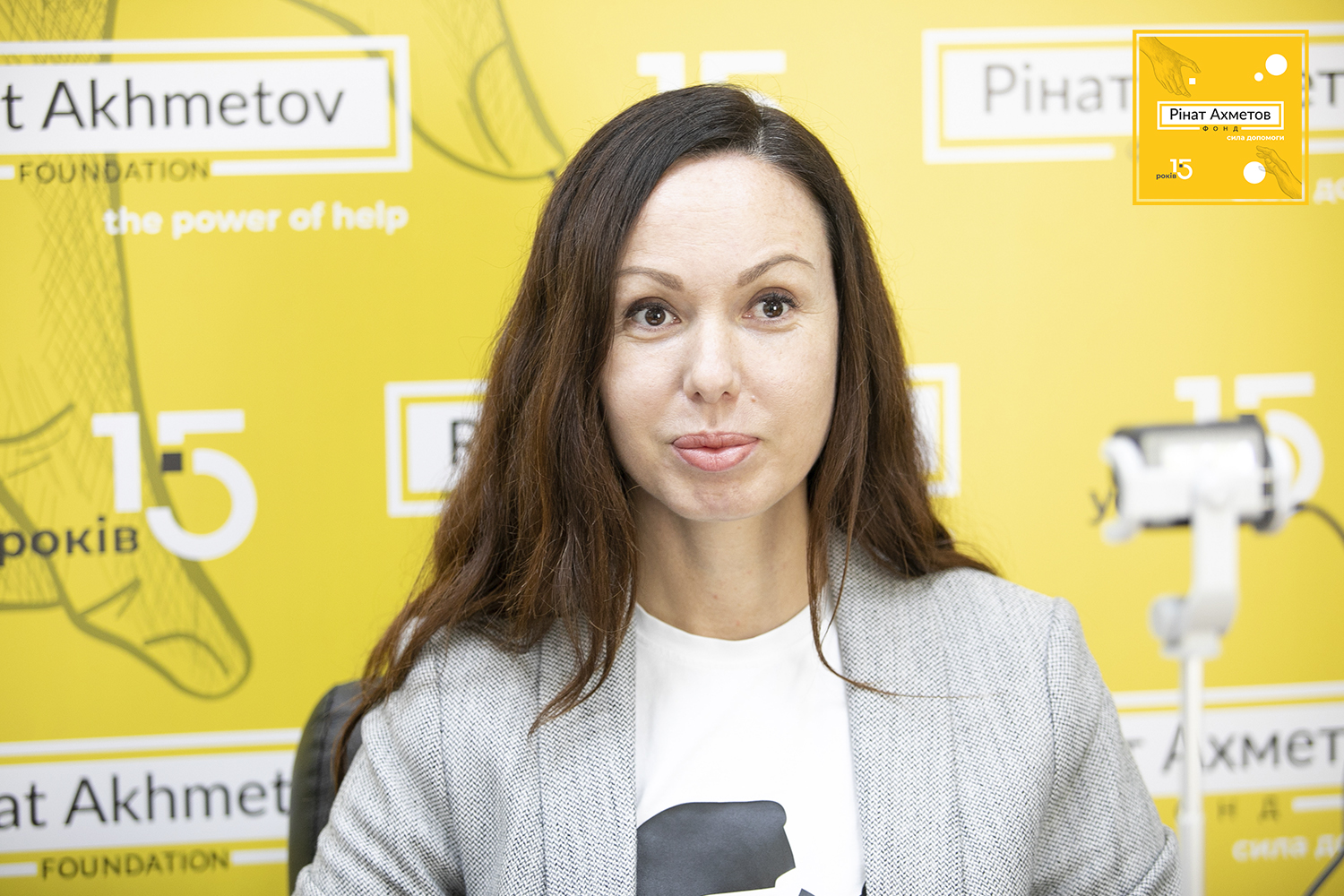
She believes that the so-called post-traumatic stress disorder includes a number of rather complex symptoms that can even lead to disability, for example, to a depressive disorder or severe neuroses. A person may suffer from sleep disorders, depression, and various psychosomatic manifestations. Children develop communication problems, atypical fears and panic attacks.
According to Maryna Sorokina, in 2014-2016, both children and adults revealed two types of reactions. People with the first type seemed to "freeze" – they were coping with current problems at that time. They did not cry, felt afraid. They refused any help from psychologists and psychotherapists. People with the second type experienced the traumatic feelings vividly.
"Let us look into the delayed consequences. Parents suddenly realize that their child had lived a normal and, all of a sudden, changed behaviour. He or she became aggressive or whiny. And parents don't understand why. This is often the result of a delayed trauma," the psychologist continues.
According to her, today fear that the war may return is one of the key psychological problems, especially for children with "a war trauma". They fear that fighting will resume, and they will find themselves in a very difficult situation again. Furthermore, children are very worried about adult relatives, especially those who have faced the death of someone they loved during the fighting. Another anxiety being observed among children now is that it is very difficult for them to plan for the future, a peaceful future. The unknown triggers fear and anxiety among children. Adults also show a delayed reaction when all the problems are solved and when they seem safe, psychological problems begin to manifest.
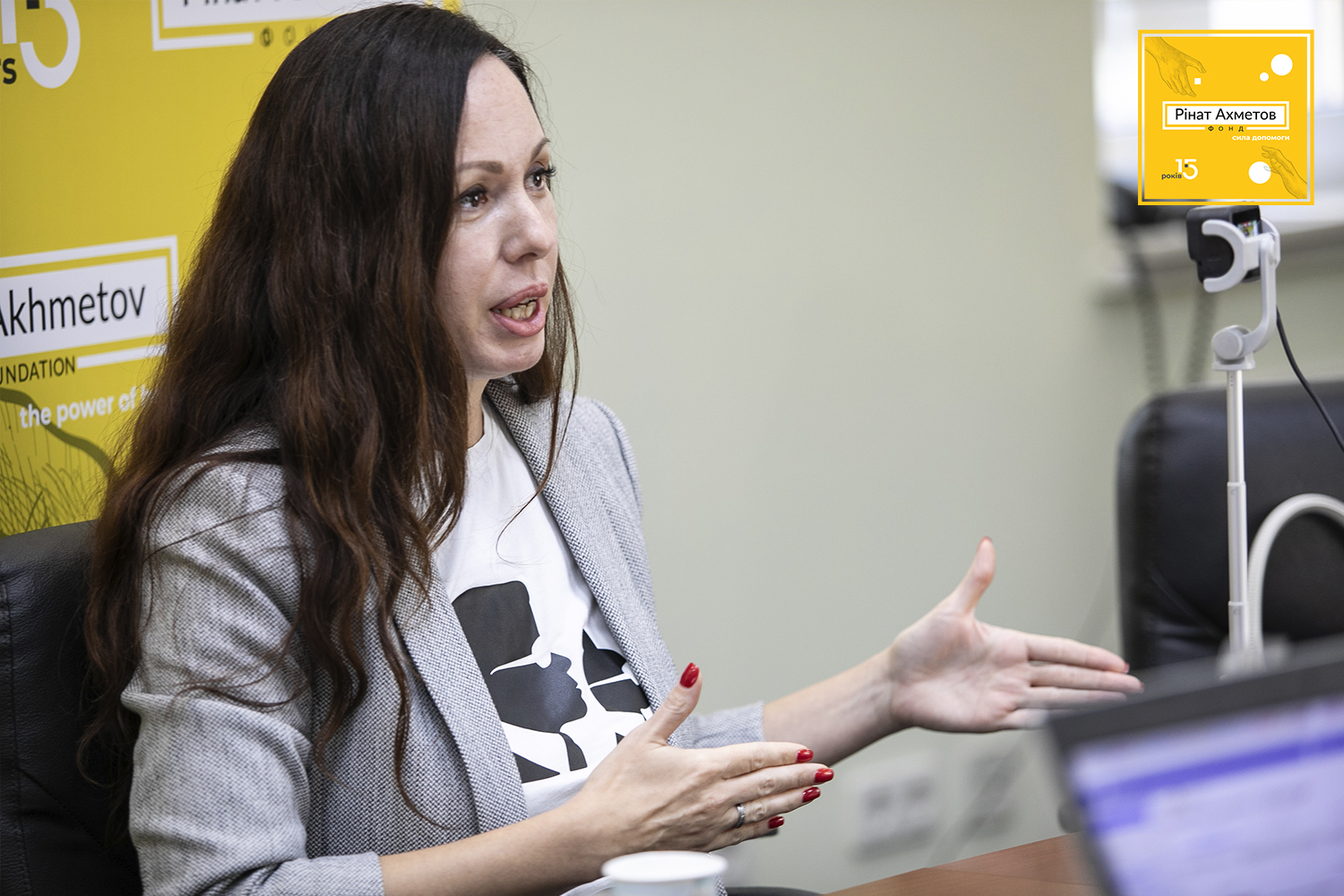
Psychologist Maryna Sorokina names a few simple tools to cope with the post-traumatic stress disorder.
1. If there is something bothering you, find people you can discuss it with. It is important. Unfortunately, we were taught not to complain. And now you often hear from adults, "How can l put pressure on someone with my problems?" They also teach children not to complain. There are times when adults and children of the same family worry about the same thing, but discussing it is unacceptable.
Therefore, we advise: 1. Find people in your environment you can share your rueful feelings with. You can tell whatever you want. Any grief is exhaustible. It ends any way. And any remaining emotion eventually turns into neurotic disorders or diseases. So it's important to share. And it is also important to remember that any emotion can be experienced only with another person. That is, crying into a pillow and crying to another person are two different things. Therefore, speak up!
2. For parents: Take care of yourselves. Remember that your stable condition is the key to both your well-being and your child's well-being. If you are scatter-brained, disoriented, children can't rely on you. For this reason, parents! Take care of yourself! I know that we live in a difficult time. So find time for yourself.
3. For children and parents. Encourage your child's creativity. Offer him to draw or sculpt. After all, children have not yet formed enough speech apparatus to express their emotions. Don't be afraid of some scary drawings. It is a way to share what's bothering you with an adult. The child can't tell everything, but the anxiety can be reflected in the game, drawings, sculpting. Pay attention to children's creativity: what they play, what they draw, and what they sculpt.
THINGS THAT MAY ALERT YOU IN CHILDREN'S DRAWINGS:
- strong lining may indicate a lot of stress;
- if a child draws himself/herself on very small piece of paper;
- if the drawings often depict monsters, a person killing another person.
In conclusion, Maryna Sorokina notes,
"If you feel that it is difficult for you, that you are confused and do not know where to go, ask for help from psychologists. If help is provided on time, you will not only cope with current problems, but also ensure a stable condition in the future.
Within the framework of the project Rinat Akhmetov for Children. Rehabilitation of Injured Children, about 130 courses of rehabilitation treatment were conducted for injured children. Within the framework of the project Rinat Akhmetov for Children. Peaceful Summer, about 4,500 children living on both sides of the contact line underwent psychological rehabilitation.
